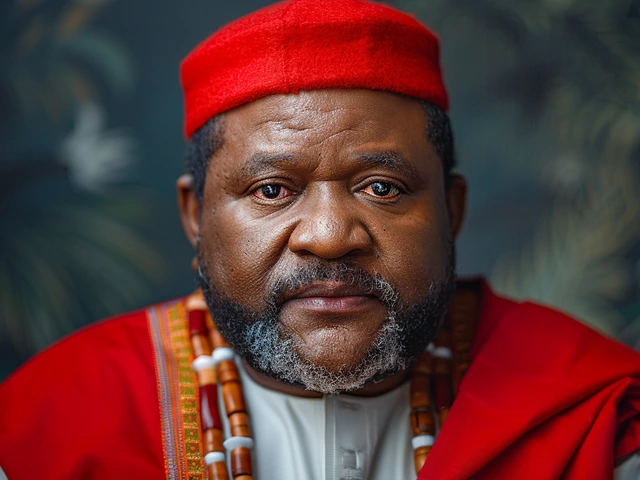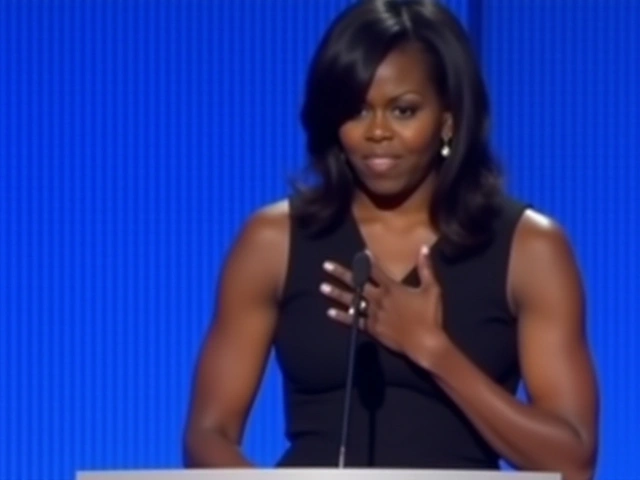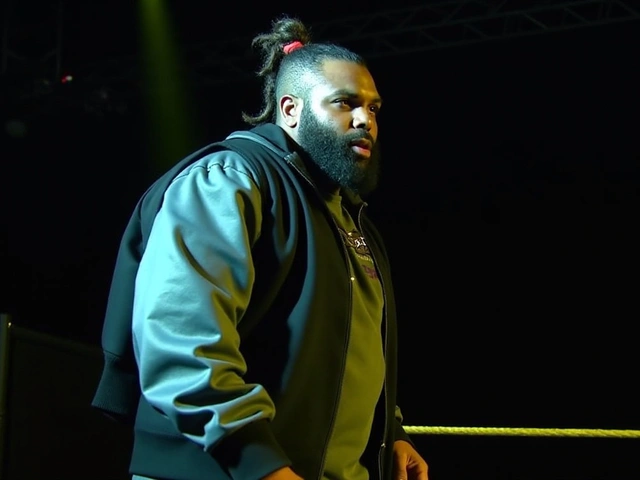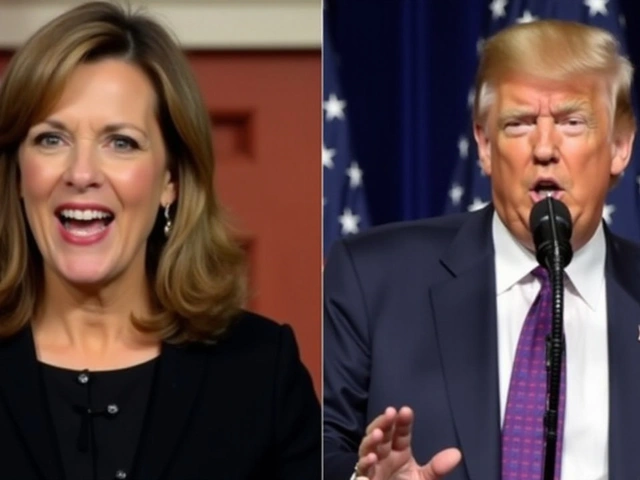
Behind the Scenes: Why Do the Same Faces Dominate Nollywood?
Ever feel like you’re watching the same handful of people every time you put on a Nigerian movie? You’re not the only one. The internet has been buzzing again with complaints from fans who say Nollywood keeps recycling the same actors. But this week, Enioluwa Adeoluwa, who’s successfully carved out his own space as both a social media sensation and up-and-coming actor, finally addressed the elephant in the room.
Speaking candidly on X, Enioluwa explained the hard truth most moviegoers never see: it’s about money. “People often say they’re tired of seeing the same faces in Nigerian films,” he wrote, “but, unlike Hollywood, actors here can't afford to shoot just one film a year – how much are they paying?” Nollywood isn’t exactly handing out million-naira cheques for a single project. Unlike their Hollywood counterparts, Nigerian actors face a constant hustle because the industry simply doesn’t have as much money to go around.
This reality spells trouble for new faces hoping for a big break. Enioluwa pointed out that if Nollywood spread its limited cash among too many newcomers, most wouldn’t be able to earn enough to cover even their basic living expenses. “No one wants to be famous and broke,” he wrote. The industry's economic foundation just isn’t solid enough to bring in lots of fresh talent and still pay them a wage that lets them survive.
Add to that another layer of truth: risk. Producers often bet on familiar actors because they draw audiences. If fans already love a particular actor, a film starring them is more likely to sell. For an industry operating on slim margins, casting safe is less risky than giving the unknown a shot.
Stars and Fans Clash Over Casting Choices
The conversation took another turn when actress Jemima Osunde decided to clap back at critics. Responding to a user who complained about seeing familiar faces like Adedimeji Lateef and Bimbo Ademoye show up in new movies like Lisabi and other projects, Jemima fired off, “We’re tired of seeing your face too in your office. Dan! I hope they sack you.” Her sarcasm hit home. Many in the industry see these complaints as unfair – actors need steady work to keep food on the table, just like anyone else clocking in at a regular job.
Fans’ frustration, though, is real. When every buzzed-about movie has the same top-billed names, it can make Nollywood feel small and closed off. People hunger for diversity, fresh energy, and the excitement of seeing someone new break through. Enioluwa and Osunde’s responses shine a light on that tension between art and survival.
- On one side: audience members who want to see variety and new talent getting chances on the big screen.
- On the other: actors and producers trying to make ends meet in a challenging financial ecosystem.
Hollywood might have the luxury of supporting an army of A-listers, up-and-comers, and one-movie wonders. Nollywood, for now, is pushed by necessity to give its handful of stars as much work as they can handle. Until the industry’s pockets get deeper, it looks like those familiar faces aren’t leaving our screens any time soon.








Yo fam, the casting loop in Nollywood is basically a budget‑driven risk‑mitigation matrix-producers keep re‑hiring the same bankable stars because the cash flow is tighter than a drum skin. It’s not just about fame; it’s about aligning ROI with limited production capital, which forces a synergy of familiar talent and predictable box‑office pull. Still, there’s room to nurture fresh faces if the ecosystem can allocate micro‑budgets for talent incubators. Keep the vibe hopeful, the industry can pivot when the finance pipeline widens!
Recycling the same actors is a lazy, profit‑driven betrayal of artistic integrity.
Listen up!!! The elite film cartel is deliberately suppressing new talent-yeah, it’s a coordinated choke‑hold on the market!!! They pump the same names into every script to keep the audience’s wallets glued to a single revenue stream!!! No transparency, just hidden financing webs!!!
When we interrogate the structural dynamics of Nollywood’s casting practices, we uncover a dialectic between economic necessity and artistic aspiration. The industry’s capital constraints act as a powerful deterministic force, compelling producers to gravitate toward proven box‑office magnets. Yet this deterministic model also engenders a self‑fulfilling prophecy: audiences see familiar faces, reinforce market demand, and thereby stifle the emergence of novel talent. It raises the philosophical question of whether economic rationality should supersede cultural diversification. Moreover, the symbiotic relationship between star power and distribution channels creates a feedback loop that marginalizes newcomers. In a broader sense, this reflects a tension found in many creative economies where scarcity drives conservatism. To break this cycle, stakeholders must consider strategic investments in talent development pipelines, akin to Hollywood’s star‑making studios. Only then can the ecosystem evolve beyond a static constellation of repeat performers. The path forward demands both fiscal courage and a reimagining of audience engagement strategies.
It is evident that the prevailing financial framework constrains casting diversity, a circumstance that elicits both empathy and concern. While the producers’ imperative to guarantee commercial viability is understandable, the cultural ramifications of a homogeneous screen are noteworthy. One might suggest incremental reforms, such as modest budget allocations earmarked for emerging actors, to foster inclusivity without jeopardizing fiscal stability.
Great points raised above, and I’d add that collaboration between veteran actors and newcomers can create mentorship opportunities that benefit both parties. By pairing seasoned talent with fresh faces, productions may retain audience draw while introducing new energy. Let’s keep the conversation constructive and supportive.
The phenomenon of recasting the same actors in Nollywood is not an isolated quirk but a symptom of a deeper systemic malaise that plagues the industry. First, the financial substrate upon which productions rest is alarmingly thin, forcing producers to hedge their bets on familiar faces who guarantee a baseline of box‑office receipts. Second, the distribution networks, heavily reliant on star power, perpetuate a cycle where only the already‑established receive promotional backing, marginalizing nascent talent. Third, audience expectations have been conditioned over years of exposure to a limited roster, making the prospect of novel casting a commercial risk. Fourth, there is an entrenched talent agency structure that consolidates power among a select few, further narrowing opportunities. Fifth, the lack of robust union protections means that actors often accept lower wages for consistent work, reinforcing the status quo. Sixth, educational institutions for film and acting in Nigeria are still developing curricula that champion diversity and innovation. Seventh, governmental incentives for film financing remain sporadic, offering little encouragement for experimental casting. Eighth, the cultural narrative surrounding fame in the region glorifies perseverance over novelty, inadvertently endorsing repeat appearances. Ninth, once a film succeeds, producers are quick to replicate the formula, leading to a homogenized product line. Tenth, the media’s role in amplifying certain stars over others adds a layer of visibility bias. Eleventh, streaming platforms, while offering new avenues, still prioritize recognizable talent to attract subscribers. Twelfth, the international market's appetite for familiar faces discourages risk‑taking in domestic productions. Thirteenth, the pandemic's economic fallout has intensified fiscal conservatism across studios. Fourteenth, audience metrics driven by social media favor celebrity culture, making data‑backed casting decisions predictable. Fifteenth, without substantial reforms in funding, mentorship, and distribution, the cycle will persist, leaving the industry stagnant. Therefore, any attempt to diversify casting must confront these intertwined economic, cultural, and institutional forces head‑on.
Think of a micro‑grant for new actors it works like a splash of color on a bland canvas
We can all agree that talent needs a platform, and platforms need variety. Introducing fresh faces isn’t just a social good; it’s an economic strategy that can rejuvenate viewership. Let’s champion a balanced roster that honors veterans while giving newcomers a chance to shine.
Formally speaking, a modest incentive scheme could motivate producers to take calculated risks on emerging actors. Reservedly, I trust that such measures would yield both artistic and fiscal dividends. Your thoughts?
While the verbosity of the prior analysis is commendable, one must address the grammatical precision of the assertions made. The argument that financial constraints dictate casting choices is valid, yet the language employed occasionally drifts into colloquial excess. A more refined diction would bolster the persuasiveness of the claim. Nonetheless, the core premise remains sound.
It is, indeed, a marvel how the industry clings to its derelict patterns, even as the ledger screams for reform. One could argue with the utmost gravitas that this stagnation is a deliberate stratagem, not mere happenstance. Yet, the irony remains deliciously palpable.
Yo, they’re hiding the real truth-big producers got secret contracts with the stars, and any new talent gets blacklisted. The system’s rigged af, no cap.
Spot‑on insight, Erica-let’s keep the dialogue constructive and encourage fresh voices!